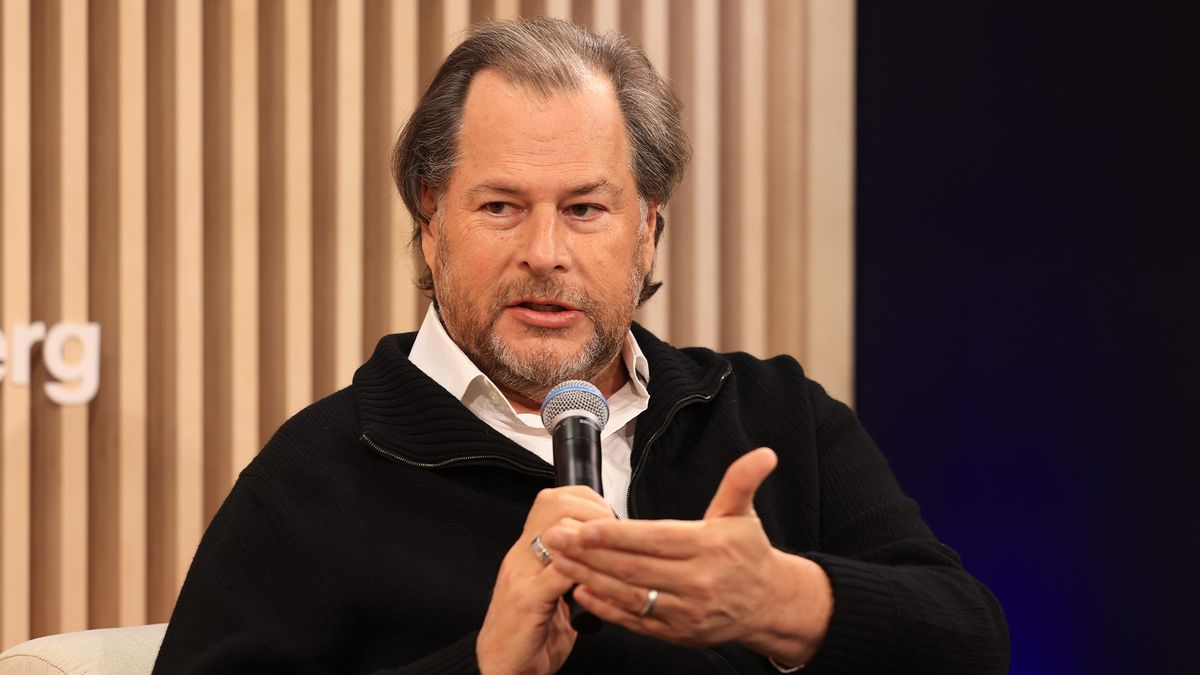Salesforce CEO Marc Benioff has suggested the company may freeze software engineering hires owing to the firm’s success with AI agents.
Productivity gains delivered by AI agents internally at Salesforce mean the firm may not need to onboard new staff in development, Benioff told ‘The Logan Bartlett Show’ podcast.
“In engineering this year at Salesforce, we’re seriously debating – maybe we aren’t going to hire anybody this year,” Benioff said.
“We have seen such incredible productivity gains because of the agents that work side by side with our engineers,” he added.
When asked about global labor shortages and the economic outlook for the agents, Benioff said that this is a big moment for customers to restructure and ramp up the adoption of AI agents.
“We are going through a global labor shortage where we see all these declining birth rates. We understand that it is harder to hire – especially people here right in the United States – in sales and service,” Benioff said.
AI agents will give businesses the ability to do more, he added, providing the example of engineering.
“We can all agree that software engineering has become a lot more productive in the last two years with basically these new models,” Benioff said.
“There’s no question the world is changing, when it gets down to labor and delivering the next generation of labor,” he added.
Software engineering could be in for a rough ride
Benioff isn’t the first big tech CEO to suggest pausing hiring for roles in software engineering. Others have gone so far as to suggest roles could be lost to the technology in years to come.
Meta CEO Mark Zuckerberg recently predicted a similar trend at the social media giant. Speaking on the Joe Rogan Experience podcast earlier this month, Zuckerberg said AI could be doing the work of mid-level engineers in 2025.
While it will be an expensive change in the short term, Zuckerberg said it’s a move that he thinks will pay dividends in the long run through efficiency gains.
Salesforce was among the first big tech companies to jump on the agentic AI bandwagon last year, and Benioff has been vocal about the potential of AI agents for enterprises, hailing this as essentially the next step in the evolutionary path of AI.
At the company’s Dreamforce conference in September 2024, Salesforce unveiled its Agentforce service, for example, with the company specifically highlighting the use of AI agents in customer service roles.
Agents do represent a step change in the AI ‘boom’. While AI assistants such as Microsoft’s Copilot tool sit adjacent to the human worker to provide support, agents are fully autonomous and can carry out tasks on behalf of the worker.
But does this mean software engineers should start looking at potential career changes? Not exactly. Research suggests that while AI will have a transformative effect on the profession, this won’t necessarily equate to widespread job losses.
In a study by Gartner last year, around 80% of the software engineering workforce could be forced to upskill by 2027 to compensate for the changing demands placed on them by AI tools and agents.
This doesn’t mean their jobs will be rendered obsolete, but more the fact that the profession itself will be transformed due to the influx AI, with the consultancy predicting the technology to play an increasingly larger role in daily tasks.
The study noted that, in the short term, AI tools have delivered modest productivity increases by supporting them in their daily workflow.
An influx of AI agents in software engineering will likely create the biggest upheaval, however. Gartner noted that the integration of agentic AI within teams will enable the full automation of tasks and result in the emergence of ‘AI-native software engineering’ where most code is AI-generated.
Source link
